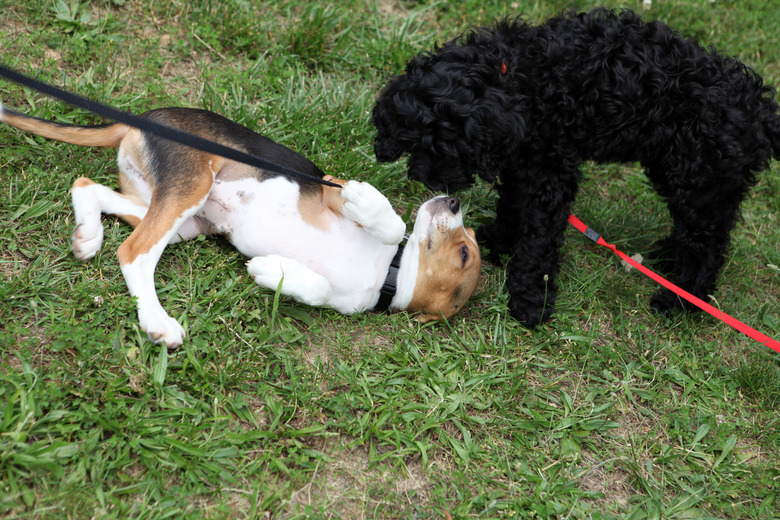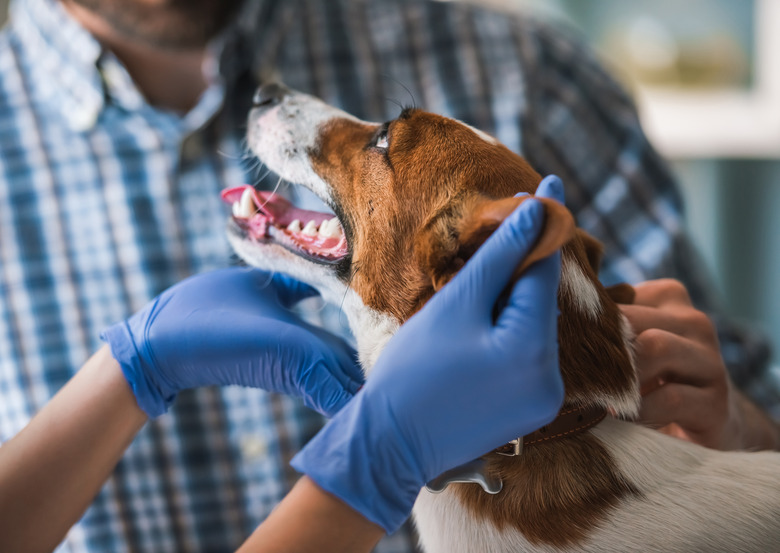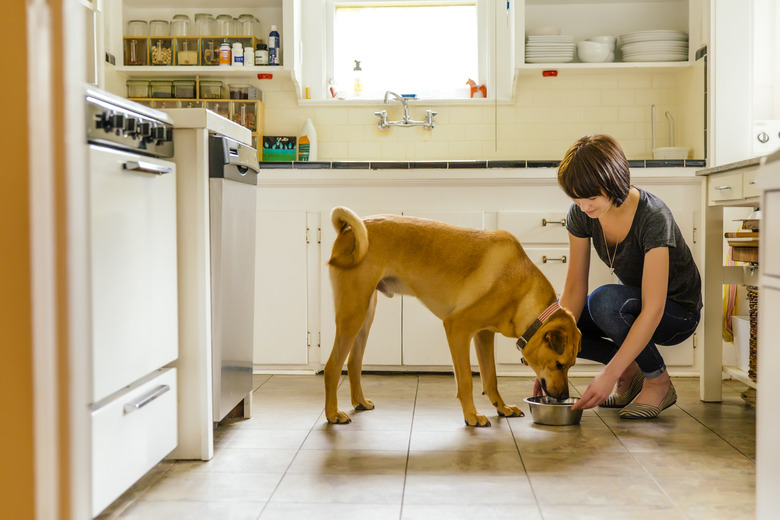How To Treat A Dog With A Cold
If you've noticed that your dog is feeling a bit under the weather, is sneezing a lot, and seems to have a runny nose, then he might have a cold. While there is no cure for the viruses that cause colds in dogs, you can provide supportive care for your pup while he recovers after bringing him to the vet to rule out something more serious.
Our canine companions can catch colds and flus from other dogs just like we can, especially when they're out and about at the dog park or visiting the groomer for a trim. While most colds resolve on their own, you can do a few things to help your dog's stuffy nose and keep him comfortable as his body fights off the cold virus.
Bring your dog to the veterinarian
Bring your dog to the veterinarian
Most canine colds cause mild symptoms similar to those of a human with a cold, including a runny nose, congestion, sneezing, and coughing. However, if you see that your dog is very lethargic, has a fever, has an especially loud cough, is vomiting, refuses to eat, or has diarrhea, an immediate visit to the veterinarian is in order.
More serious conditions, like kennel cough, bronchitis, canine influenza, and canine distemper, can cause similar symptoms to a canine cold. Once your vet properly diagnoses your dog, she will set up a treatment plan for your dog to follow, which usually includes rest, medication for any secondary bacterial infections, decongestants, and possibly IV fluids in the office if your dog is severely dehydrated.
Can I use Neozep for dogs?
Can I use Neozep for dogs?
One of the ways that you can make your dog more comfortable is by giving your dog a cold medication that will help with congestion and her runny nose. Unfortunately, most medications that are safe for humans aren't safe for dogs. If you're considering using Neozep for dogs or Disudrin for dogs, you'll have to ask your veterinarian first.
Neozep cold care products contain paracetamol and phenylephrine HCl in addition to chlorphenamine maleate. Disudrin is a children's cold medication that contains phenylephrine HCl and chlorphenamine maleate.
While chlorphenamine maleate is not approved for use in dogs by the Food and Drug Administration, veterinarians can prescribe it for your dog off-label. Phenylephrine is a decongestant that can also be used in dogs but in small doses to avoid potentially harmful side effects. Paracetamol, also known as acetaminophen, is a painkiller that can sometimes be given to dogs in small doses to avoid a toxic reaction. All of these drugs must be given under the care of a veterinarian to avoid harming your pup.
Safely relieving your dog's stuffy nose
Safely relieving your dog's stuffy nose
To avoid any human medications altogether while still relieving your dog's stuffy nose, you can place your dog in the bathroom with you while you take a hot shower. Make sure to close the door to keep in the steam. The steam from the shower will help moisturize and open his nasal passages, providing natural relief from his cold symptoms.
Another option is to place a humidifier next to your dog's favorite spot to rest. The humidifier will help unclog your dog's nose and keep the nasal passage moist. For severe congestion, you can even use a nasal aspirator for babies on your dog's nose to remove the excess mucus from his nose.
Encouraging your dog to eat
Encouraging your dog to eat
When your dog has a stuffed-up nose, she won't want to eat because she won't be able to smell her favorite foods. In addition, the cold virus that is making her sick is probably making her a little queasy.
To encourage your dog to eat, try warming some canned dog food in the microwave for a few seconds or heating it gently in a double boiler before serving it to her. The heat will make the food smell more pungent to her sensitive, stuffed sniffer.
For dogs who normally eat dry food, if you don't have any canned food in the house, simply moisten the kibble with warm water. This will make it smell better and make it easier for your dog to digest.
References
- American Kennel Club: Can Dogs Get Colds?
- Willows Veterinary Centre & Referral Service: Can I Give Human Painkillers to My Pet?
- Unilab: Cough & Colds
- Unilab: Disudrin
- Pet Poison Helpline: Cold and Flu Medications Toxic to Pets
- PetPlace: Chlorpheniramine Maleate (Chlor-Trimeton) for Dogs and Cats
- K9 of Mine: What Can I Give My Dog for Nasal Congestion?
- American Kennel Club: Should You Warm Up Your Dog's Food?


